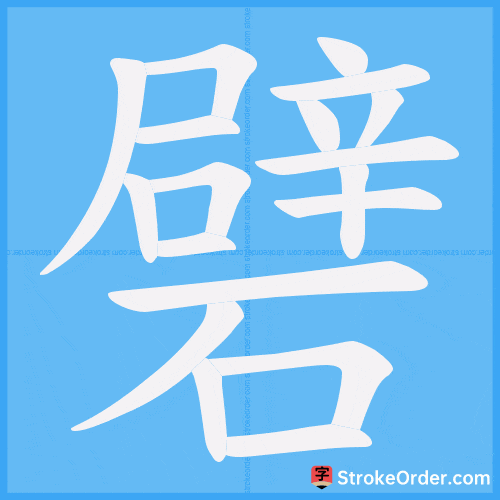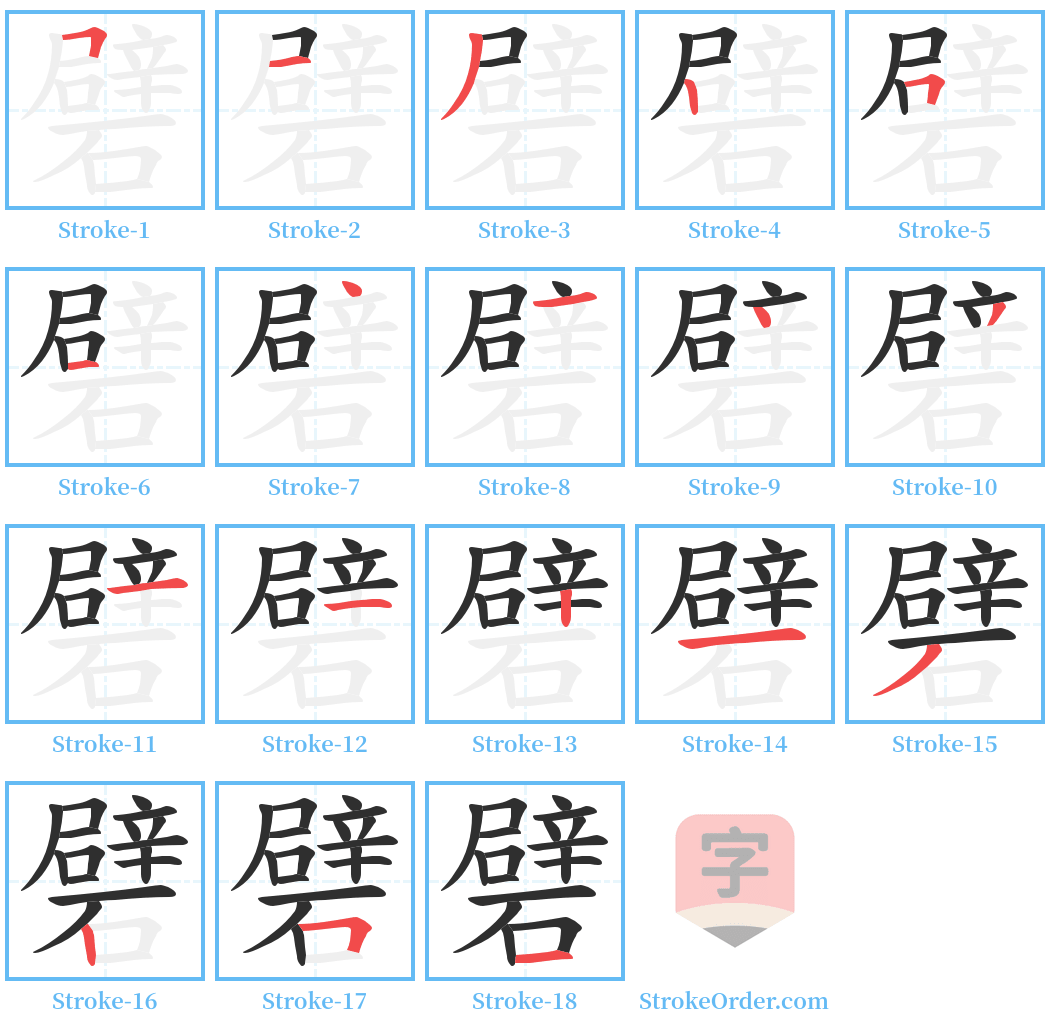礕 Stroke Order
Animated Stroke Order of 礕

Stroke Order Diagrams for 礕

Information of 礕
Pinyin
pī
Radical
石
Strokes
18 strokes
Usage
★★
Definition
礕
1. In ancient times, it had the same meaning as "霹" (pī), which refers to a sudden strike or thunder.
古同“霹”。
2. In ancient times, it had the same meaning as "劈" (pī), which means to split open.
古同“劈”,破开。
3. Used as a borrowed character for "伪" (wěi), which means false or fake. To do, to make, to act, to manage.
假借为“伪”。做,作,干,搞。《世说新语・巧艺》:有客自云能,帝使为之。
4. To create or to compose. Referring to the idea expressed in "庄子・人间世" (Zhuangzi - Human World): "If one looks up at its small branches, they are twisted and cannot be the main beam. If one looks down at its large roots, they are divided and cannot be used for coffins."
制作;创作。《庄子・人间世》:夫仰而视其细枝,则拳曲而不可以为栋梁,俯而见其大根,则轴解而不可为棺椁。